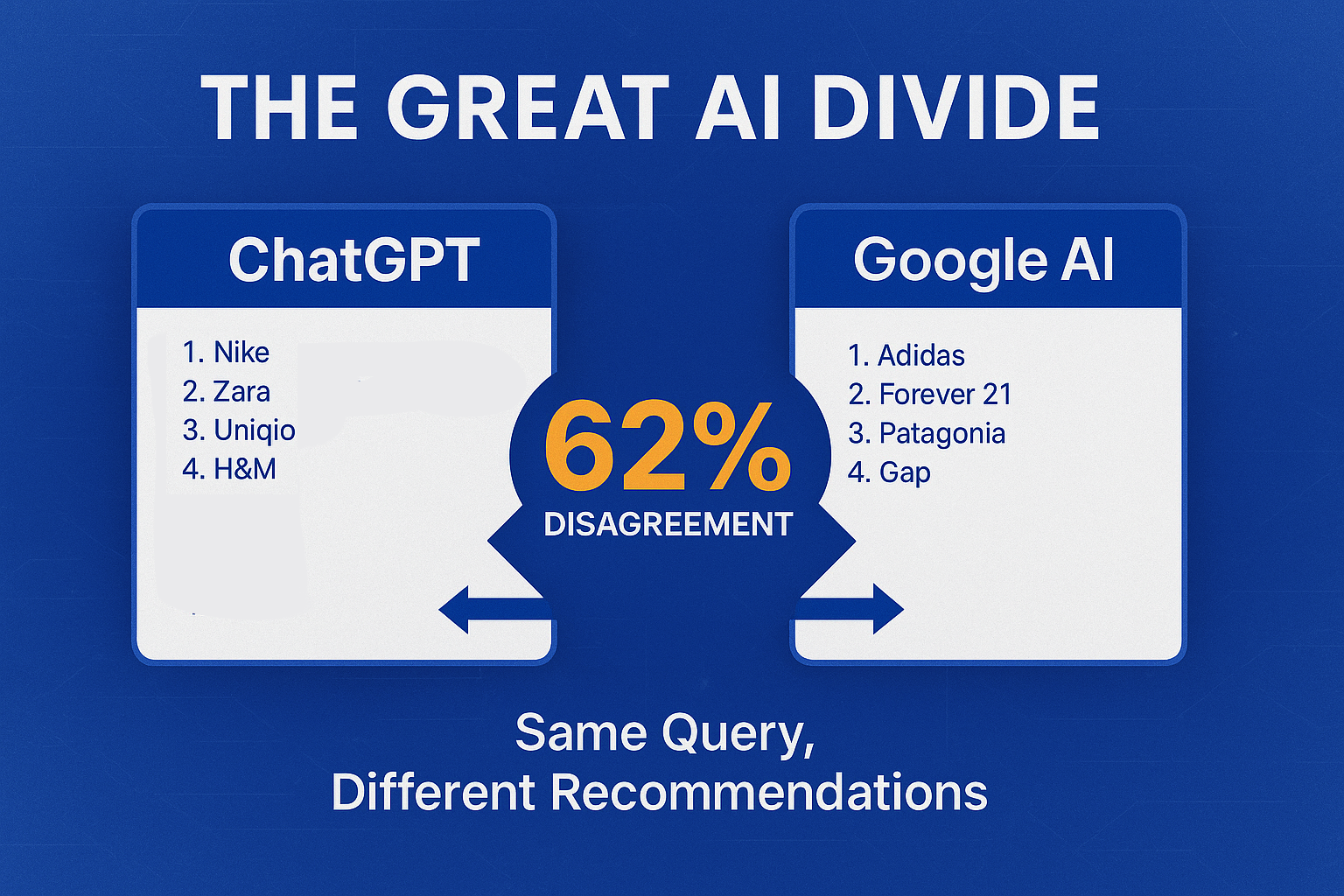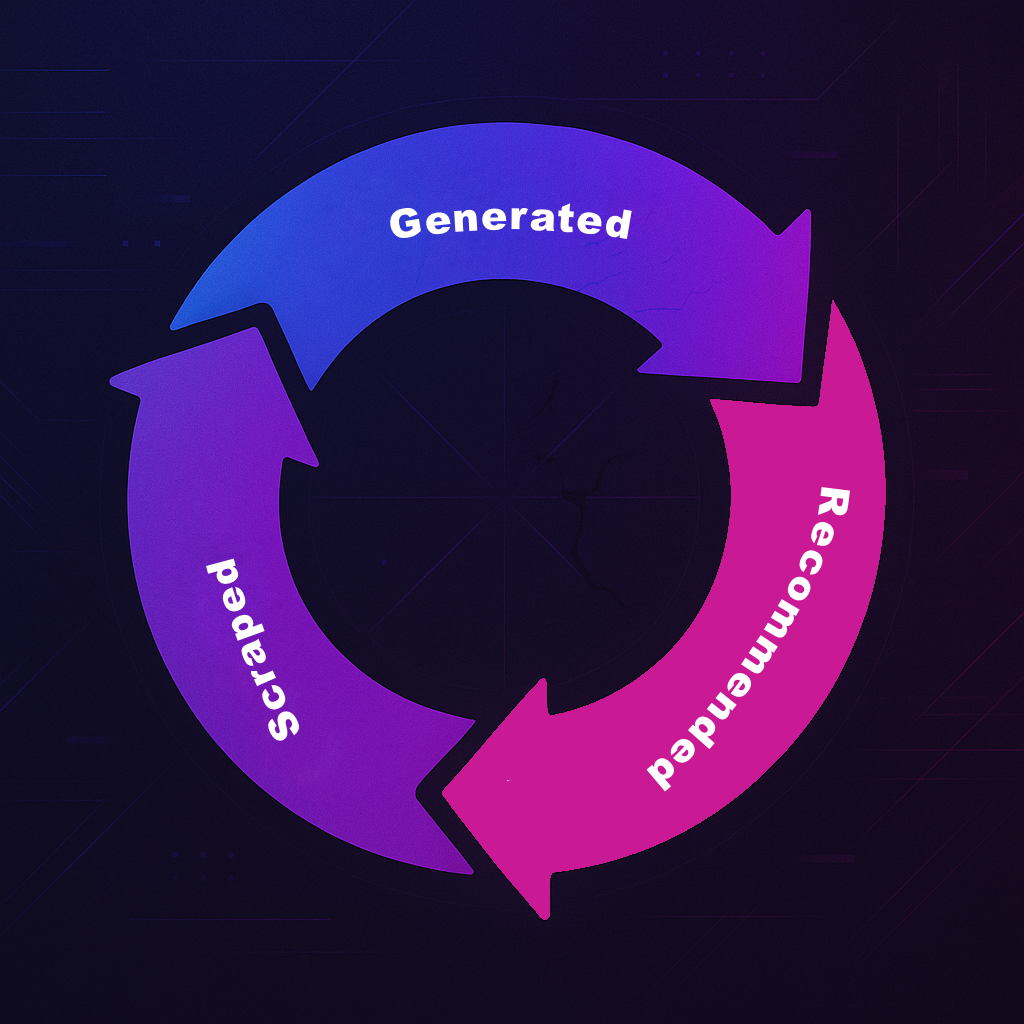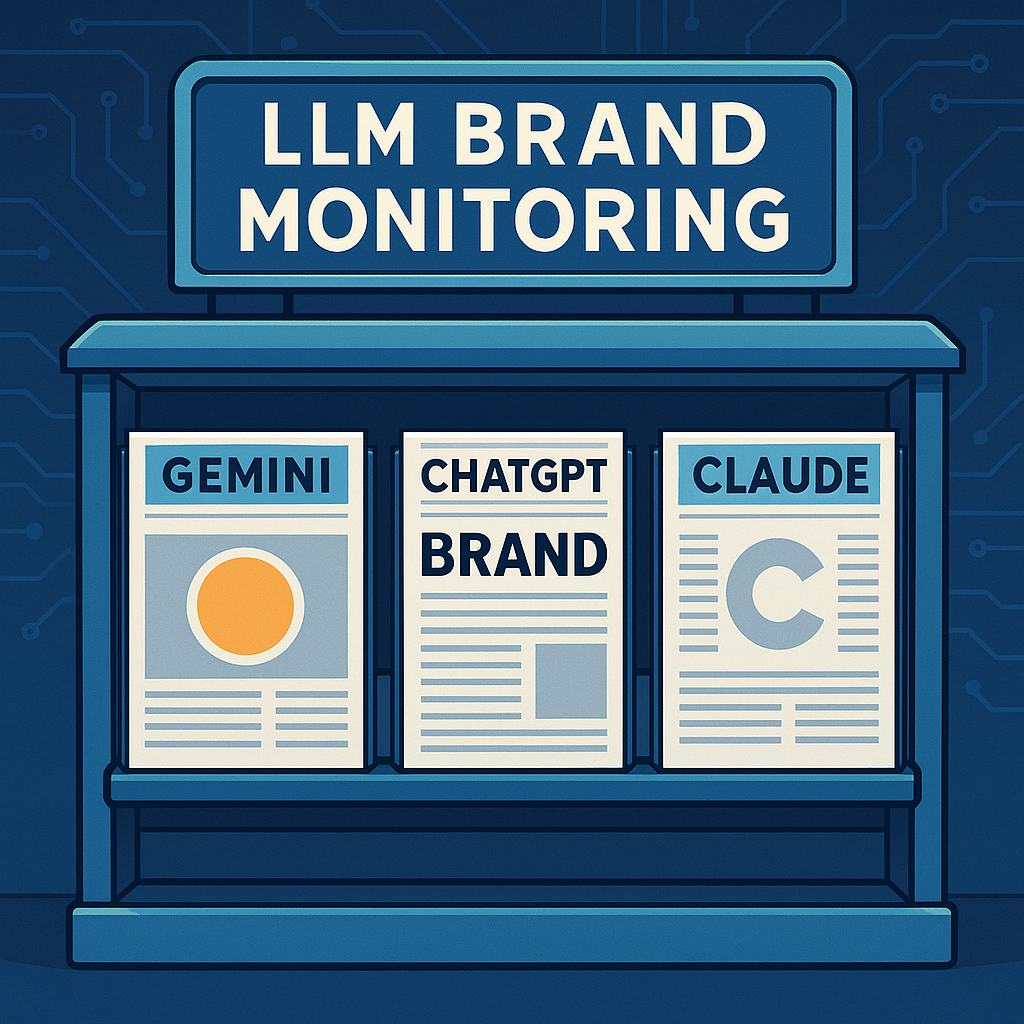Introduction
With a comprehensive audit complete, you've identified the gaps between your intended brand narrative and its AI representation. Now comes the critical phase: correction. According to McKinsey, AI will contribute as much as $13 trillion to global GDP by 2030 LinkedIn, 2021, making the effort to correct AI brand perceptions an essential investment. This fourth installment of our BEACON methodology explores how to systematically influence AI systems to more accurately represent your brand.
Understanding the AI Knowledge Ecosystem
Before diving into correction strategies, it's essential to understand how AI systems develop their "knowledge" about brands. Research shows that LLMs interpret meaning by analyzing the proximity of words and phrases, creating a semantic "space" where topics like "dog" and "cat" cluster together, while unrelated concepts like "dog" and "skateboard" remain distant Ahrefs, 2024. This semantic organization means brands must strategically position their content within relevant topic clusters.
-
Training Data Sources
- Official websites and branded content
- News articles and media coverage
- Social media conversations
- Review platforms and customer feedback
- Industry reports and analyses
- Academic literature and patents
- User interactions with the AI system
-
Signal Strength Factors
- Content freshness and recency
- Source authority and credibility
- Content consistency across sources
- Information uniqueness and distinctiveness
- Citation and reference frequency
- Content structure and accessibility
Harvard Business Review has noted that AI brand management encompasses multiple activities designed to build reputation and image, suggesting that correction efforts must be similarly multifaceted HBR, 2024. As the global LLM market is projected to reach $259.8 million by 2030 with a CAGR of 79.80% Springs, 2025, brands that establish effective AI correction strategies now will gain significant competitive advantage.
Strategic Correction Approaches
Based on our work with hundreds of brands, we've developed a framework for effective AI narrative correction. Recent studies of over 10,000 real-world search queries reveal that content featuring original statistics and research findings sees 30-40% higher visibility in LLM responses Analyzify, 2025. This preference stems from LLMs' built-in verification processes that seek to support claims with concrete data.
-
Direct Source Optimization
- Enhancing official digital properties with structured data
- Developing comprehensive FAQ content addressing common AI queries
- Creating authoritative "about us" content that clearly articulates positioning
- Publishing technical documentation with machine-readable formatting
- Implementing Schema.org markup for organization, products, and services
-
Third-Party Amplification
- Strategic PR focused on narrative correction
- Industry analyst briefings and reports
- Targeted thought leadership content
- Academic and research partnerships
- Case studies with clear attribution
- Securing coverage in high-authority industry publications
-
Digital Footprint Expansion
- Consistent presence across all relevant platforms
- Strategic Wikipedia and knowledge base enhancement
- Structured data implementation
- Content syndication with proper attribution
- Strategic linking and citation building
- Developing a comprehensive AI Brand Monitoring strategy that spans multiple platforms
According to McKinsey's analysis, leading companies in AI implementation share four distinct characteristics: executive sponsorship, mature partnerships with vendors and consultants, smooth cross-departmental collaboration, and strategic implementation of high-value use cases HBR, 2025. These same factors are critical for successful brand narrative correction programs.
Technical Implementation Guide
Effective correction requires technical precision:
-
Structured Data Markup
- Implement Schema.org markup for organization, products, and services
- Create machine-readable brand information
- Structure product data consistently across all digital properties
-
Content Hierarchy Optimization
- Ensure key positioning statements appear in H1/H2 headers
- Front-load critical information in meta descriptions and page intros
- Use clear, definitive language for core brand attributes
-
Digital Entity Management
- Consistent NAP (Name, Address, Phone) information
- Clear parent-child brand relationships
- Explicit product categorization and terminology
Measurement and Validation
Correction isn't complete without validation:
-
A/B Testing
- Test different correction approaches on limited content
- Measure impact on AI responses
- Scale successful approaches
-
Progressive Monitoring
- Track changes in AI representation over time
- Measure improvement against baseline metrics
- Identify areas requiring additional intervention
-
Competitive Benchmarking
- Compare correction effectiveness to industry standards
- Identify emerging best practices
- Adjust strategy based on competitive positioning
Case Study: Systematic Correction
When a healthcare technology company discovered that AI systems consistently misrepresented their privacy practices, they implemented a systematic correction strategy using advanced social listening tools to identify misrepresentations and track improvements Hootsuite, 2024:
- Created a dedicated "Data Ethics" section on their website with structured data markup
- Published a peer-reviewed paper on their privacy framework
- Updated their Wikipedia page with properly sourced information
- Developed clear FAQ content addressing common misconceptions
- Secured coverage in industry publications focusing specifically on their privacy stance
- Implemented continuous AI brand monitoring across multiple platforms
Within 90 days, AI responses about their privacy practices shifted from 68% negative/concerned to 77% positive/assured—demonstrating the effectiveness of coordinated correction efforts. This approach aligns with research indicating that companies using AI for marketing experience higher customer satisfaction rates and better brand perception outcomes Sprout Social, 2025.
Preparing for Optimization
With correction underway, you're now positioned for the next phase of the BEACON methodology: optimization. In our next article, we'll explore how to proactively shape future AI representations through strategic content development and testing.













